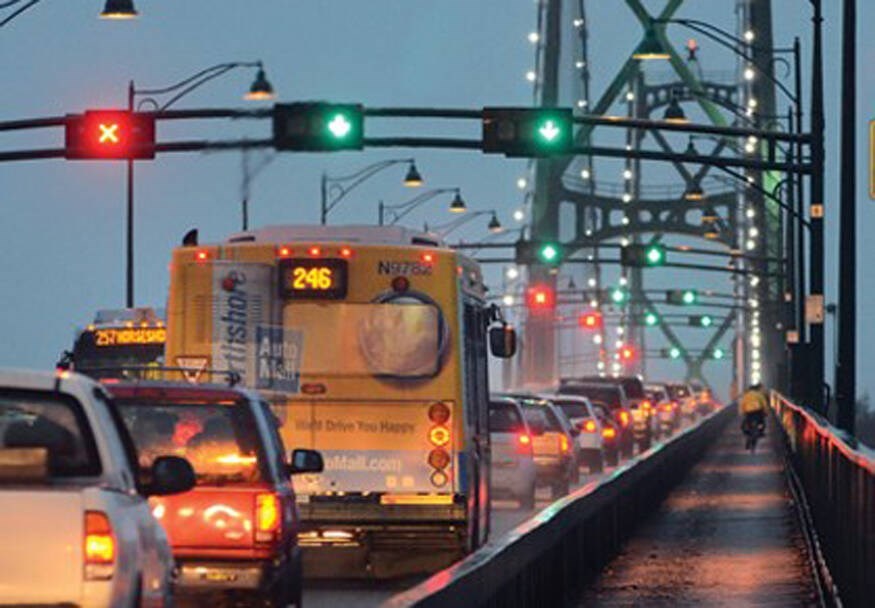As people revel in the return of summer conditions and prepare for their long weekend road trips to bid the season farewell, ICBC is issuing a warning: be safe when taking to the roads.
According to ICBC, the average Labour Day long weekend will see around 2,000 crashes in British Columbia, with three people killed and 568 people injured throughout the province.
“Those are big numbers. That’s just the reality of our roads these days,” said ICBC’s road safety co-ordinator for the North Shore, Louisa Mendoca.
Naturally, people will want to be out enjoying the sun with it being the final weekend of summer holidays for students before they return to school next week, said Mendoca, but there are ways to do so without putting themselves or others at risk.
Of all the tips ICBC recommends to drivers, the most notable is to simply plan ahead, said Mendoca. That means checking the route and the road conditions in advance – drivebc.ca is a vital tool to harness before planning a trip away. Driving during an off-peak time, when there is less traffic and, as a result, less stress, can also make for a safer option, she added.
With fatigue being a key cause of many long weekend road accidents, Mendoca said she can’t stress enough the importance of getting a good night’s rest and making sure that breaks are taken while driving, or that another driver is utilized during journeys to swap shifts and lighten the load.
Drivers should also be wary of distractions, said Mendoca, with cellphones in particular being the biggest culprits for causing crashes.
“A driver is 3.6 times more likely to crash if they’re on their phone while driving. That’s a lot – 3.6 times more likely is huge,” she said. “So keep that phone out of sight, leave it alone. Put it in your glove box, for example, or your centre console before you start driving. Put it on silent mode so you don’t hear it.”
As people prepare for a weekend of festivities before the summer comes to a close, Mendoca also urges drivers and passengers to be aware of careful consumption and factor in how that may affect road journeys. Whether the trip is near home of further afar, plan ahead when it comes to involving alcohol, she said.
“That’s ensuring there is a designated driver, or using taxi services or rideshares. Take transit. There are so many different ways of getting home safe.”
Equally as important as the condition of the driver is that of the vehicle, added Mendoca. There's never any harm in carrying out a pre-trip check to make certain the vehicle is roadworthy and ready for a lengthy journey.
“How is your vehicle? Let’s ensure it’s in good working order before you travel. Are your gas levels good? Do you have a full charge on your battery? Check your tires, your brakes, or windshield fluid, all those basics."
Mina Kerr-Lazenby is the North Shore News’ Indigenous and civic affairs reporter. This reporting beat is made possible by the Local Journalism Initiative.



